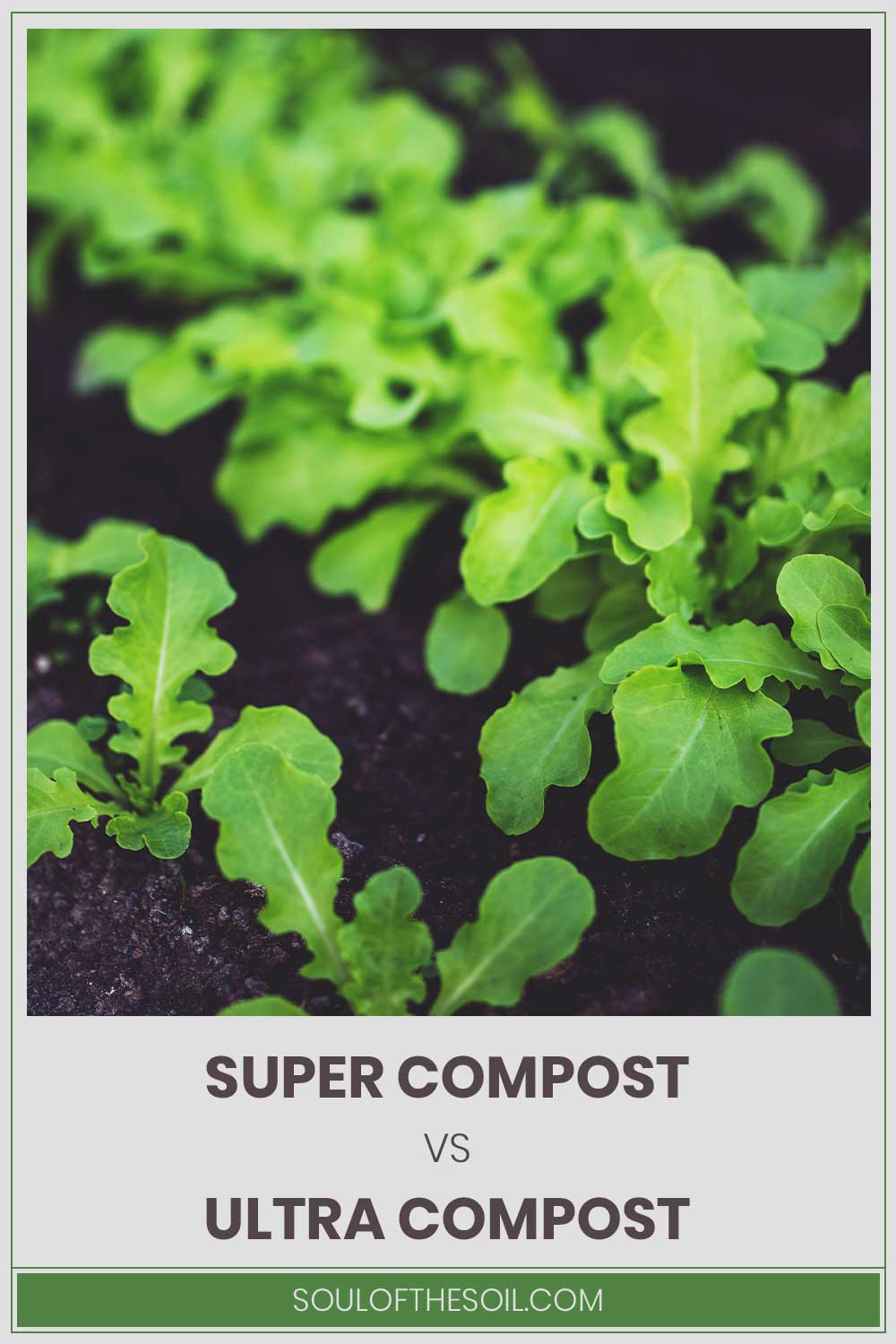Super Compost vs. Ultra Compost
We may earn commissions for purchases made through links on our site. Learn more on our about us page.
As you advance in knowledge and technique, when it comes to composting, you begin to find the best mixes with which to grow.
The Super compost will be the best mix with products grown with the heaps’ previous compost soils and fruit and vegetable scraps, to which most plants will grow with bigger and healthier yields and root systems.
Ultra compost will take that one step further, in which an organic farmer will go out and procure items such as volcanic ash and fireplace ashes and mix them into the compost heap.
The differences will be enough to see additional yield results in a matter of plus one or two more fruits per plant, on average.

What are the Differences?
Think of compost heaps as levels, simple compost will be your table scraps and possibly some leaves or natural organic material. As your compost ages, it becomes a healthy ecosystem and begins churning out quality soil, which will equal healthy or quality compost.
Then you reach super and ultra. Super is when your healthy compost heap has seen multiple growing seasons, to which soils have produced plants and been harvested, to then be reintroduced to the heap.
Ultra will take this to the next level and introduce elements such as coconut husks or volcanic ash, which then have been processed and turned into soil.
What are the Similarities?
These are going to be the best compost, and there will not be heights beyond this. Super becomes ultra. Both systems take years to cultivate the right bacterium and produce healthy layers of workable materials and finished-rich soil to help create a healthy natural cycle.
The mixture base for both compost levels will comprise multiple layers of the process working together, years of bacteria cultivation, and organic materials from harvest and the dinner table.
Pros and Cons: Ultra Compost vs. Super Compost
The best part about using Ultra compost is the boost in yield and the fullness of the product, which leads to the con being the difficulty in procuring exotic organic matter such as volcanic ash.
Super compost will be the best soil-producer ecosystem when considering how to find or produce rich, healthy soil.
The con could be the amount of time required for the super compost processes to get started, then be ready to give out soil without damaging the ecosystem, which can take years to set up entirely.
Which one is More Common?
The most common of these two types of compost heaps will undoubtedly be the super compost, as the ultra-systems require the usage of rare organic materials that are not easy to get a hold of in most cases.
Super compost is primarily made up of plant materials grown from the produced soils and otherwise going to be made up of matter from around the immediate area.
A much easier process than, say, traveling or spending some extra cash on getting the exotic ingredients, especially when it comes to the collection of materials. Be sure to mix in some ground-up tree limbs or other natural materials to bolster your compost.
Which One is More Efficient?
In order to properly give a comparison between super compost and ultra compost, we must look at the yield differences at harvest time. When you get into numbers, we will have to use a general number to describe a standard plant yield, in this case, tomatoes.
The average yield per tomato plant at harvest time will be around ten pounds each. Now with super compost, you can get into the fifty pounds range per plant, best case scenario.
Then for the Ultra compost, there is going to be a yield closer to eighty pounds per harvest per plant, in which you can easily see the difference that compost makes when it comes to growing food.
Final Thoughts on Super Compost vs Ultra Compost
There are not going to be many situations in which there are going to be better results from growing food in the soil only.
But, of course, there are going to be places like Illinois that have naturally rich soils. So it will be worth the time investment when it comes to creating or finding a provider of compost to help you with your daily organic waste scraps and use when growing foods.
Be sure to do a little research into the types of foods you will be growing. This way, you can mix in optimal organic materials to help those plants grow healthier and fuller.



Leave a Reply
You must be logged in to post a comment.